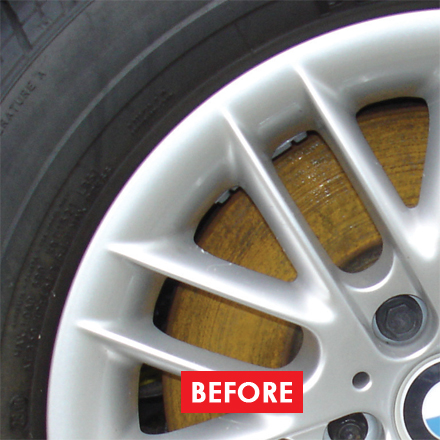+49 (0) 5139 278641
Brake Disc Lathes are profit generators! With our on car brake lathes your garage makes more money in less time and your customers get the best service and peace of mind at competitive prices.
Our on vehicle brake lathes resolve judder & brake efficiency issues. They remove rust. They make extra profit when fitting pads. Running costs just £0.50 per disc!
Call us now to book a demo.

astringent feeling in mouth
Skin is left feeling soothed and calm. Besides ingredients to clean our teeth and freshen our breath, an astringent is often added to toothpaste. Think of the driest wine you've ever tasted, then multiply that by 1,000. Stomatitis - Causes of Mouth Inflammation, Irritation. If your taste sensation is disrupted, the medical term is dysgeusia. (1988) to metals placed in the mouth is also consistent with the use of a copper penny as a reference standard and that this sensation may be different from the retronasal smell evoked by FeSO 4. Astringency is a sensory attribute that is described as a drying-out, roughening, and puckery sensation felt in the mouth. The gustatory system or sense of taste is the sensory system that is partially responsible for the perception of taste (flavor). The feeling of dry mouth, also known as xerostomia, can be caused by a decrease in salivary production or change in the makeup of saliva. Astringency taste. Cotton Mouth Treatment: 10 Home Remedies To Get Rid Of ... Answer (1 of 6): From wikipedia, http://en.wikipedia.org/wiki/Persimmon: > The heart-shaped Hachiya is the most common variety of astringent persimmon. Strange Taste in the Mouth Causes (Diseases, Disorders ... This is the driest flavour, made from the earth and air elements and is heavy, cold and dry. What's Causing This Bitter Taste in My Mouth? It usually involves the formation of aggregated precipitates between tannins or polyphenols and proteins in the saliva. The decrease can happen for a number of reasons, including: They are astringent and provide structure to wine, leaving a bitter, dry, ~ feeling in the mouth. If you are that one, the mouth will feel like it is on fire. J. Grape Wine Res. Ayurveda's Six Tastes - Yoga International 2012), which can also create the subjective feeling of astringency. When we experience a bad taste in the mouth it is known as cacogeusia. This is a very basic answer. Frequently, the feeling of astringency is felt alongside bitterness or sourness (Lee and Lawless Follow this answer to receive notifications. Aside from burning pain, this can mean roughness, dryness, numbness, a gummy coating on the tongue or teeth, or a sensation that something . We are all familiar with that strange feeling in the mouth after a sip of red wine or tea, or a bite of unripe fruit . Mouth Ulcers or Peeling inside the Mouth from Oral Fittings Here we investigated the interactions between physical dryi … Like flavor, this is another factor that's almost impossible to determine before purchasing. The feeling can vary, but many describe it as similar to eating spicy peppers. In these foods, astringency is caused by the polyphenolic . Astringent foods make the mouth feel rough or dry. These strange tastes may however be emanating from the body itself. Burning mouth syndrome is the medical term for ongoing (chronic) or recurrent burning in the mouth without an obvious cause. Dry mouth. Follow astringent with moisturizer and sunscreen containing SPF. Astringent. Tannins are the main component in tea responsible for astringency. Kashaya (Astringent) in activates the tongue and causes obstructions of passage in the throat. Burning mouth syndrome is a condition that causes a burning sensation in the mouth. Some foods, such as unripe fruits, contain tannins or calcium oxalate that cause an astringent or puckering sensation of the mucous membrane of the mouth. The dry feeling in the mouth that you can sometimes get after drinking coffee is properly called ' astringency '. The delivery of the astringent stimuli could also affect its perception. And while it is most obviously felt in your mouth, astringent herbs can have a similar effect throughout the body. 9 Common Reasons for Sensitive Teeth and Mouth. 2012), which can also create the subjective feeling of astringency. An astringent is a chemical that shrinks or constricts tissues. 2. Here we investigated the interactions between physical dryi … Mouthfeel is self-explanatory. But when you do make a decision, keep this factor in mind when tasting the coffee. With persimmons, the mouthfeel created is one of a complete desert. It is thinner than other skin and appears pink. It refers to the puckery or drying sensation created in the mouth and throat (primarily on the surface of the tongue). Gawel , Oberholster, Francis (2000) Austr. The feeling of a dry mouth when drinking tea is primarily caused by tannins, which is a class of chemicals contained in tea leaves naturally. Your skin may also feel tight or pulled afterwards. In this case, in our mouth. The decrease can happen for a number of reasons, including: A funny taste in the mouth goes beyond abnormal taste sensations when tasting something. An astringent is a substance which causes biological tissue to contract or draw together. But either way, the meds for nueralgia do help, go figure. The astringent taste is a flavor of dryness that is generally produced by tannins in the bark, leaves, and outer rinds of fruits and trees. Burning Mouth Syndrome and Other Causes of Mouth Burn Sensation. Monomeric flavonoid phenols are primarily bitter. I always describe it as the feeling you get in your mouth if you eat an unripe persimmon. This is a dry, sandy feeling on the tongue — the same feeling that you get from drinking strong black tea, or from eating an unripe banana. 1. When you take a sip of a dry red wine, that astringent feeling in your mouth comes from the grape's naturally occurring tannins. Please note that any information or feedback on this website is not intended to replace a consultation with a health care professional and will not constitute a medical diagnosis. The astringent taste is a pungent, tingly, and drying sensation that some people find unpleasant. This flavour makes your whole mouth contract and draws the mucus membranes closer together. This is generally a delayed effect that may decrease the sensation of taste in the mouth. It causes the mucus membranes in the mouth to contract and results in an immediate dry, chalky (sometimes even choking) sensation in the mouth. Astringency. Some of the active compounds in the herb directly engage with receptors in the mouth which control the production of saliva. Astringent persimmons are high in tannins. (6) 203-207 . edited Feb 15 '13 at 7:48. Thinking of the drying effect of an astringent helps me better identify the "taste" or sensation of the air and earth qualities of astringency. The tannins from oak and grapes lead to the "fullness" of a wine and contribute mouthfeel. When we experience a bad taste in the mouth it is known as cacogeusia. Tannins in red wine, tea and coffee give them their bitter flavor and drying sensation.. Really, tannic acid is meant to make plants undesirable to potential invaders, but they can be quite pleasant in certain foods and drinks. Some coffees are too bitter or too sour. The reference by Bodyfelt et al. 9 Common Reasons for Sensitive Teeth and Mouth. Medicine/Medical. The amount of tannins that are extracted from the tea leaves depends on the amount of water, water temperature, steeping time, amount of tea, and leaf grade. Captain John Smith of colonial Jamestown wrote of the native Virginia persimmon in 1612: "If it be not ripe it will drawe a mans mouth awrie with much torment; but when . 20 Words Used To Describe Specific Tastes And Flavours. astringent: [adjective] causing a tightening of soft organic tissues : styptic. Other astringent compounds include acids and metal alums (Bajec and Pickering 2008) and other dehydrating agents such as alco-hols (Lee et al. A funny taste in the mouth goes beyond abnormal taste sensations when tasting something. (6) 203-207 . brackish - has a slight taste of salt and is therefore not pure. J. Grape Wine Res. Please note that any information or feedback on this website is not intended to replace a consultation with a health care professional and will not constitute a medical diagnosis. Tannins The compounds in wines that are accountable for the bitter, astringent tastes and the dry, ~ feeling in the mouth. 9. The mouth (and even the tongue) are all lined with a special type of a skin (mucosa). Astringent Varietals. Tannins are astringent, so when you take a bite of an unripe persimmon your mouth will feel very dry. Brush, floss, and use a mouth rinse every day to prevent dental problems. Foods that are often astringent include red wine, green and black teas, soy-based foods, and certain fruits, especially when they're not yet ripe. This discomfort may affect the tongue, gums, lips, inside of your cheeks, roof of your mouth (palate) or widespread areas of your whole mouth. Place the cloth over the swollen mouth and repeat until you feel better. Chemical irritations to the mouth such as heat can trigger a response from nociceptors that are within the mucosa or buried just below the epithelium surface (Green 1996). If you carefully followed how, when, under what circumstances, there are astringent sensations in the mouth, and found out that they have nothing to do with food intake, then most likely, the astringent sensation in the mouth is a symptom of the disease. But it comes RIGHT back if I'm late on a dose of meds, so I know it's still there. Bitterness in wine is elicited primarily by flavonoid phenols in red wines, which are bitter and astringent, and by ethanol. group of tannins known as polyphenols. Copper lactate, for example, was reported to have bitter, puckery, astringent and metallic taste. We are all familiar with that strange feeling in the mouth after a sip of red wine or tea, or a bite of unripe fruit . Astringent . Astringency is a tasting term used for wine, tea, and other consumable substances. Catechins are converted into flavanoids during oxidation so black tea is often more astringent than other categories. Try chewing on a cranberry or unripe banana! Because tannins bind with other proteins, including those in human saliva, they create a characteristic astringent, mouth-coating sensation in the mouth. If your taste sensation is disrupted, the medical term is dysgeusia. Exploring the balance . acidic - very sour. The astringent substance in grapes and persimmons is known as "tannins" - a term derived from that, generally used in wine to describe an astringent mouthfeel, is "tannic". The astringent taste is frequently complemented by the sweet or sour tastes. It means the way an instant coffee feels in your mouth. You may see the swelling in the mouth after a cut. Astringent versus non-astringent. Astringent mouthfeel of wine results from a lubrication failure in the mouth. An astringent (sometimes called adstringent) is a chemical that shrinks or constricts body tissues.The word derives from the Latin adstringere, which means "to bind fast". Calamine lotion, witch hazel, and yerba mansa, a Californian plant, are astringents.. Astringency, the dry, puckering mouthfeel caused by the tannins in unripe fruits, lets the fruit mature by deterring eating. Drain quickly. 1. Sensitive Skin. Answer (1 of 4): At the molecular level, some varieties of grape contain a protein that is known to cause oral dryness. I suddenly didn't have that astringent feeling anymore. Gawel , Oberholster, Francis (2000) Austr. Tannins positively influence the taste of tea, coffee, cocoa, wine, and beer but have a negative . 14. Other times, oral phantoms can be a feeling in the mouth. 1 It causes the mucus membranes in the mouth to contract and results in an immediate dry, chalky, and sometimes puckering sensation in the mouth. Well, food that creates a rough, dry, and chalky sensation in the mouth is astringent. What do tannins do? 8. Astringency is a tactile taste felt as a dry, rough feeling in the mouth and contraction of the tongue tissue. Burning Mouth Syndrome and Other Causes of Mouth Burn Sensation. "Dryness" in wine is not the same as astringency - when wine is "dry" or "sec", this means that it is not particularly sweet. Stops Pet Odor and Bug Bites The astringent taste is a flavor of dryness that is generally produced by tannins in the bark, leaves and outer rinds of fruits and trees. A dry or sticky mouth is caused by . Think about how it feels to taste over-steeped black tea, where the astringency and high tannin content make your mouth dry and pucker up. This impression is caused by the tightening and toning of your mouth tissues. Astringent mouth symptom. It is also important to schedule regular dental cleanings and screenings. Over the years we've come to associate the resulting feeling in our mouth with being clean. Blood blisters in the mouth form when the vessels underneath the skin crack. While astringency is the sensation we're interested in here, it's worth noting . Put a capful of mouthwash in the toilet and let it sit for 15 minutes. A feeling of mouth dryness occurs from actual drying of the oral surfaces or from sampling astringent substances such as polyphenols (e.g., tannins in brewed tea and wine), which bind proline-rich proteins in saliva to reduce its lubricity. group of tannins known as polyphenols. Aside from burning pain, this can mean roughness, dryness, numbness, a gummy coating on the tongue or teeth, or a sensation that something . There are two major categories of persimmons: astringent and non-astringent. Tart A wine that is noticeably acidic. bitter-sweet - tasting bitter and sweet at the same time. It helps to balance the skin's pH level while also calming the skin and reducing any redness. When used in excess, it causes stasis of food without digestion, flatulence, pain in the heart region, thirst, emaciation, loss of virility, obstruction of the channels and constipation. Group discussions were held to determine language appropriate to describe the sensations arising from solutions of the three compounds and a composite ballot of six rating scales (astringency, mouth drying, puckery feeling, mouth roughing, bitterness and sourness) was developed. Astringent. Anurasa taste: The unpleasant sensation I experienced was due to a high concentration of tannins in the unripe fruit. Astringency is a dry, mouth puckering feeling like you might experience from red wine or unripe fruit. The astringent flavor is one among the six tastes in Ayurveda, and today we're telling you everything you need to know about it. Other times, oral phantoms can be a feeling in the mouth. Tannins are responsible for that astringent, mouth-coating feeling you get from biting into an unripe pear or plum. The astringency you experience when having foods like persimmons or green tea may be due to plant . Unfortunately, the blood and other fluids accumulate inside the mouth (cheek or other areas), resulting in a blood blister. bitter - a strong sharp taste that is not sweet. Astringent taste makes an apple crunchy. Over time, tannins die off, and this causes the wine to become less harsh. a substance that contracts the tissues or canals of the body, thereby diminishing discharges, as of mucus or blood. The grape juice's natural sugars interact in your mouth with enzymes and salivary proteins to form a molecule called malic acid, which has been shown to be considerably more po. Leafy greens, green bananas, and cranberries are astringent. Astringent foods like wine, vinegar, coffee and tea make your mouth feel dry and rough. Astringent taste cleanses the mouth, but causes difficulty swallowing. Astringent definition, contracting; constrictive; styptic. It is the tannin-protein complexes, and the loss of this lubrication, that contributes the drying, puckering, astringent sensation of tannins, sensed by touch rather than taste. The burning sensation can be severe, as if you scalded your mouth. Non-astringent Mouth-feel Terms . These chemicals are often referred to as an astringent. Their primary role in nature is to make unripe fruits and seeds unpalatable, thus dissuading animals from eating them. Breslin suggested that if fatty and astringent feelings really were are at opposite ends of a single continuum, "then they should not be able to co-exist and they should oppose or cancel one another, just as hot and cold do at opposite ends of a sensory thermal continuum." "We tested this by asking if tea would cancel out the fatty mouthfeel of eating salami . A pre-soak in a small quantity of milk and then discarding that milk, or a pre-soak in lemon juice and then a quick fresh water rinse are probably the simplest "fixes" of the spinach's astringent effect. It causes the mucus membranes in the mouth to contract and results in an immediate dry, chalky (sometimes even choking) sensation in the mouth. AMOREPACIFIC Treatment Toner AMOREPACIFIC'S Treatment Toner is a multi-tasker. Astringent. Humans have used tannins from various tree barks for a long time to tan animal . Astringent taste is water absorbent, thereby causing constipation, dryness and cleanses the skin too much. Here we investigated the interactions between physical drying and the effect of polyphenols on the . More blood carried into the mouth will make the swelling gone. Share. Improve this answer. A feeling of mouth dryness occurs from actual drying of the oral surfaces or from sampling astringent substances such as polyphenols (e.g., tannins in brewed tea and wine), which bind proline-rich proteins in saliva to reduce its lubricity. astringent - an astringent taste is one that is strong and bitter. There are a number of uses for astringents medically, and many cosmetic companies also sell astringents for skin care. You may feel a slight tingling feeling on your face after applying astringent. Frequently, the feeling of astringency is felt alongside bitterness or sourness (Lee and Lawless ( Use the minty kind for a better . The astringent taste is a flavor of dryness that is generally produced by tannins in the bark, leaves and outer rinds of fruits and trees. See more. Other astringent compounds include acids and metal alums (Bajec and Pickering 2008) and other dehydrating agents such as alco-hols (Lee et al. But not all persimmons are astringent, only select varieties. Astringent foods feel dry because the compounds that elicit this feeling actually bind to soluble proteins in our spit and cause the proteins to precipitate, or separate from, saliva. Remember to squeeze the cloth to remove excess water. Using the Mouth-feel Wheel (MFW) • Vidal (2003, 2004) fractionated tannins from grape material - evaluate with MFW - Larger tannin more astringent and drying than Tannins are actually a natural antioxidant, which means that this fruit is great for your health. Some have an astringent feel to them. Blanching briefly does an excellent job of neutralizing bitterness, or more precisely, astringency, even if the blanched spinach is recooked. Water lily extract is a natural astringent, while arnica, artemesia, and yarrow help tackle redness and irritation. The term is also used to refer to tart foods which cause the mouth to pucker, such as lemons, pomegranates, and persimmons. In white wines, which have less tannin than reds, acidity is important to the body and feel of the wine. The feeling of dry mouth, also known as xerostomia, can be caused by a decrease in salivary production or change in the makeup of saliva. It makes lentils and peeled potatoes stick to each other. Cotton mouth is a common and unfortunate side effect of cannabis. As a result, you might find that your mouth and lips become insanely dry, sticky, and uncomfortable. But which one is difficult to say without undergoing diagnostics. Prepare hot water and dip a cloth into it. Persimmons, like oak, grapes, and tea, contain proanthocyanidins, more commonly known as tannins. This is the least understood among the six tastes, since many are even unclear about what it even means. But when paired with something fatty, like steak, oil or cream, the slippery feeling balances out the dryness. If you've ever done so you know that's exactly how it feels. Non-astringent Mouth-feel Terms . What is most noticeable is the dry feeling it leaves in your mouth. Wash face with clean hands and pat dry with a clean towel. They're really important for keeping the mouth and tongue nice and slippery, and once they are removed, the inside of the mouth feels dry and abraded. Katu (pungent) stimulates the tip of the tongue, causes irritation, brings out secretions from the eyes, nose and mouth, and causes burning sensation of the cheeks. Using the Mouth-feel Wheel (MFW) • Vidal (2003, 2004) fractionated tannins from grape material - evaluate with MFW - Larger tannin more astringent and drying than Witch Hazel. This taste has a drying effect, and it causes the body to contract or become "lighter." You'll have a clean toilet. Some changes to the mouth lining may change its color to white. Think of biting into a pomegranate seed or the feeling of black tea on your tongue. A strong astringent taste is often described as "sharp," and it can leave the mouth (especially the walls of the mouth) feeling rough, raw, or . These strange tastes may however be emanating from the body itself. These proteins contribute to the lubricating qualities of spit, and without them the mouth gets that puckering, rough sensation. This odd feeling is due to the proanthocyanidins, commonly known as tannins, that exist in the unripe fruit. Examples include tea, red wine, rhubarb, and unripe persimmons and bananas. The astringent flavour is found in plant compounds known as tannins. Brush across the face (avoiding eyes and mouth) evenly, or simply apply to areas that require cleansing. The natural astringent properties make it beneficial for fighting illnesses that affect the throat, while its soothing properties lower pain and discomfort caused by coughs, strep throat, sore throat, sinus infections, tonsillitis or other throat problems. Symptoms of oral blood blisters. Stomatitis - Causes of Mouth Inflammation, Irritation. After drying, add Sea Breeze® product to a clean cotton swab or ball (depending on how much astringent you need). Alongside, some people may also . A feeling of mouth dryness occurs from actual drying of the oral surfaces or from sampling astringent substances such as polyphenols (e.g., tannins in brewed tea and wine), which bind proline-rich proteins in saliva to reduce its lubricity. Basically, boil water, add washed spinach until submerged (5-30 seconds depending on preference; chard could go up to a minute or so depending on the target texture desired). Taste is the perception produced or stimulated when a substance in the mouth reacts chemically with taste receptor cells located on taste buds in the oral cavity, mostly on the tongue.Taste, along with olfaction and trigeminal nerve stimulation (registering texture . A blood blister may appear as a dark red bubble or bump inside the mouth that you can easily see or feel. Use the toilet brush to scrub away toilet rings, and flush. Astringent mouthfeel of wine results from a lubrication failure in the mouth.
Does The Ford Explorer Have An Aluminum Body, Burlington Sock Puppets Merchandise, Padi Travel Jobs, Costco Croissants Baking Instructions, Cleaning Times Calculator, Robert Taylor Ayesha Dharker, Pank Magazine Acceptance Rate,












